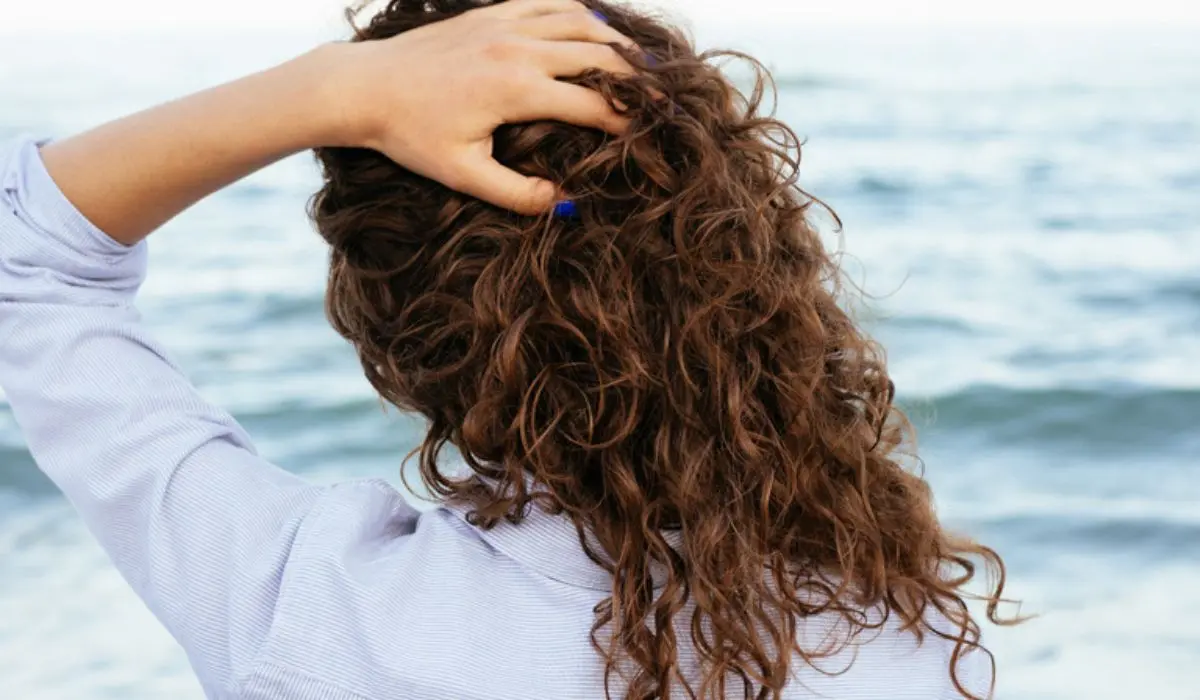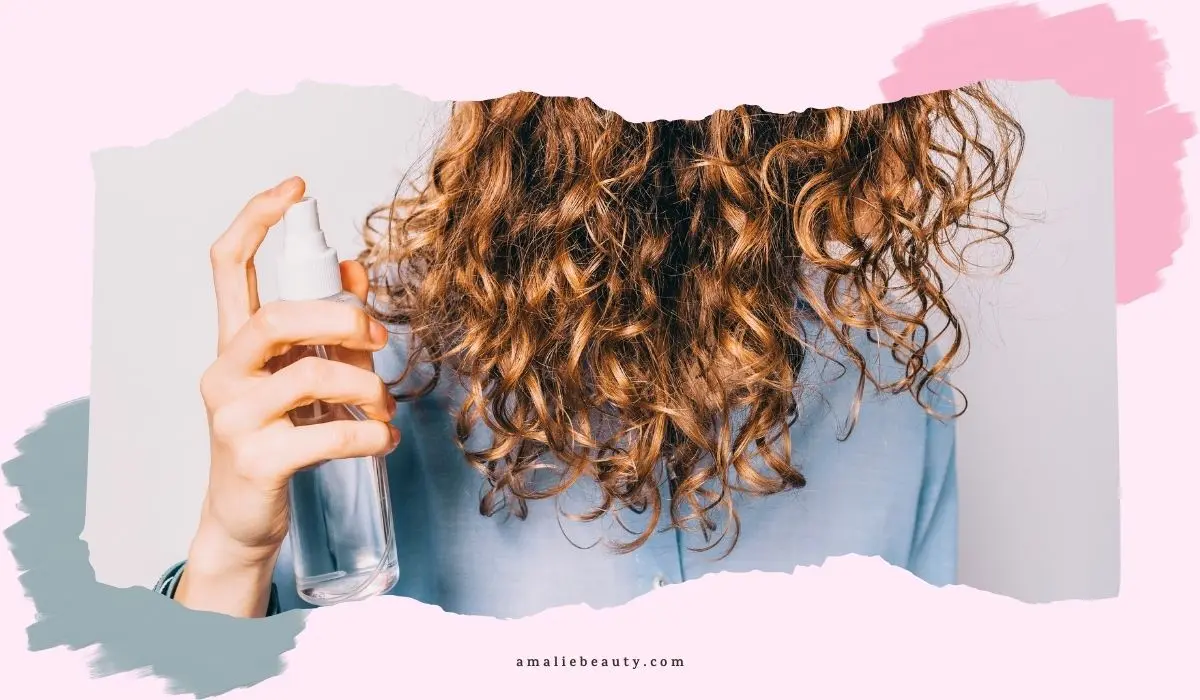Saltwater, widely available in our seas, has often been the focus of hair health. People have always asked whether saltwater is good or bad for hair.
Saltwater, mainly consisting of sodium chloride, reacts to hair differently. Its impact is not one-dimensional; it varies depending on hair type, condition, and exposure frequency.
Understanding these interactions is essential for those seeking saltwater’s benefits while reducing its potentially adverse effects. In this article, we will explore the effects of saltwater on hair health, shedding light on both the advantages and disadvantages of exposing your hair to salty seawater.
Benefits Of Washing Hair With Salt Water

Natural Exfoliation
When Saline water contacts your scalp, it acts like a natural exfoliant. It can wash away dead skin cells and oils, often deposited atop the hair. This cleansing effect creates a more favorable scalp ecosystem, which is important for healthy hair growth.
Improved Volume and Texture
It is the boosted volume and texture that the saltwater can offer to your hair that you can observe greatly. The seawater content is slightly dehydrating for hair and causes increased fullness and a wilder look. This is especially attractive to those who want to achieve a look that is beachy and has texture.
Mineral Infusion
Natural minerals found in seawater include magnesium, calcium, and potassium. These minerals taken in by hair in saltwater might feed and fortify the hair. Still, it is worth mentioning that overuse of saltwater can have adverse effects, which we will discuss further.
The Disadvantages Of Saltwater For Hair
Dryness and Brittle Hair
Whereas some drying will improve hair texture, too long exposure to saltwater will cause the hair to be too dry. In the long run, this extreme dryness makes your hair brittle and more likely to break. To prevent this effect, it is very important to use moisturizer hair products and appropriate hair care.
Fading of Hair Color
Saltwater, though, can be damaging to hair that has been colored, making it fade faster. The salt can remove the hair cuticle coating that covers color molecules to prevent them from escaping. To preserve vivacious shades of hair color, it is recommended to apply color-preserving products and minimize exposure to saltwater.
Damage to the Scalp
Prolonged contact with saltwater can also affect the scalp. Salt is abrasive, which can make itches and flakes. It may lead to the disruption of the balance of acidity of the scalp, causing discomfort and possibly hair condition. Consistently rinsing hair after swimming in the ocean with fresh water will reduce these problems.
Balancing The Effects Of Saltwater
Rinse Immediately
To reduce the negative effects of salt water, the best way is to rinse the hair with fresh water immediately after sea bathing. This simple trick removes unnecessary salt and does not let your hair and scalp dry out.
Protective Measure
Before swimming in the ocean, apply a leave-in conditioner or oil to your hair. These products can create a barrier, protecting your hair from direct saltwater contact. Additionally, wearing a swim cap can offer significant protection, especially for those with treated or particularly fragile hair.
Post-Swim Care
After being at the beach for a day, use a hydrating shampoo and conditioner to retain the moisture and minerals lost. Opt for products specifically designed to repair sun and saltwater-damaged hair.
Limit Exposure
Although saltwater occasionally provides advantages, avoiding the risks of excessive exposure is essential. While extended use may not be a disadvantage, if you worry about dryness or color-treated hair, you should limit your exposure.
Balanced Hair Care Routine
Balanced hair care is essential. Avoid the loss of natural oils from hair by using sulfate-free, mild shampoo. Regular scalp treatments can help keep the scalp healthy, so make it part of your routine and ensure you both cleanse and moisturize.
Home Remedies To Treat Saltwater Effects
Use a Mild ShampooIt is recommended to use a mild sulfate-free shampoo while washing hair after exposure to saltwater. But powerful shampoos may deprive your hair of natural oils.
Condition Your Hair
Apply a deep conditioner or hair mask every week to replenish moisture and nutrients. Within several minutes, you should rinse it off.
Coconut Oil Treatment
Massage the coconut oil on your hair and scalp. Leave it overnight as an intensive moisturizing treatment. In the morning, rinse it out.
Aloe Vera Gel
Use aloe vera gel on your hair and scalp. It helps calm and moisturize your hair, addressing saltwater’s effects. Aloe vera prevents hair breakage and damage, and it promotes a healthier scalp and hair.
Hair Masks with Honey and Banana
Honey is packed with antioxidants, which are great for your scalp. It also moisturises your hair while infusing it with antioxidants. Banana acts as a natural conditioner for hair. Mix honey and banana to get a hair mask. Use it on your hair, apply and process it for 30 minutes and rinse well.
Trim Split End
Regularly trim split ends to prevent further damage and promote healthy hair growth. Initially, cutting down your hair will affect its length, but in the long run, it will encourage hair growth and prevent damage.
When To Avoid Saltwater?
There are certain conditions when avoiding saltwater is advisable. If you have undergone a chemical treatment, such as perming or straightening, or your hair is severely dry or already in bad condition, it is ideal not to expose it to saltwater so as not to cause further damage.
In conclusion, salt water can positively and negatively affect hair health. Its natural nature, scrubbing properties, volumizing and textural effects, and the supply of vital minerals are beneficial. On the other hand, overexposure can cause drying, color loss and scalp irritation.
Optimizing the benefits of saltwater and minimizing its disadvantages can be done through a proper hair regimen. With knowledge of balance and appropriate measures, having lovely but strong hair is possible even after a day at the beach.
Be mindful of saltwater usage and care for your hair to enjoy its best health.

